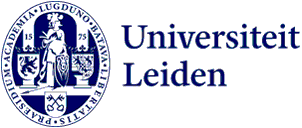
Nina Schmal wins Political Science Master’s Thesis Prize 2024
Successfully completing a master’s thesis in Political Science is no small feat. Not only is this for most students the most extensive and in-depth research report they have ever written, the work is also held to very high standards. Yet, every year students manage to impress their instructors and demonstrate the ability to conduct publication-worthy research, independently and appropriately. So 2024 again yielded a list of splendid nominees for the thesis prize. On 11 October 2024, during the master’s graduation ceremony, the winner and the runner-up were announced. Congratulations, Nina Schmal and Ruben Geertman!
‘Journal articles’
For the academic year 2023-2024, the jury received seven nominations, covering a wide range of fascinating subjects—from ‘opposition fragmentation and polarisation’ to the ‘influence of African Regional Economic Communities on coup occurrence’. Corinna Jentzsch, Tom Theuns and Yuan Yi Zhu faced the difficult task of picking the winning master’s thesis.
The jurors applied the same criteria as they would to assess work that is submitted for publication. After all, Political Science master’s students are expected to write their thesis in the form of a journal article. In their report, the jurors note that ‘all nominees and their supervisors delivered outstanding work’. Ultimately, the list of potential winners was narrowed down to two. Since ‘both of these theses are worthy of recognition’, the jury decided to include an honourable mention, next to the winner.
Honourable mention: Ruben Geertman
In Squabbling on ethnic lines: A quantitative analysis of the implications of ethnic recognition for peace, Ruben Geertman offers an ‘innovative perspective on the recognition of ethnic minorities and the banning of ethnic parties, and how they affect post-conflict societies’. The jury is very enthusiastic about this runner-up thesis (supervised by Maria Spirova and second reader Vasiliki Tsagkroni): ‘It builds on an excellent understanding of current research on the topic and explains its theoretical and methodologial approach in a careful and convincing way.’
‘A level of sophistication rare for a master’s thesis’
The winner of this year's thesis prize, however, is Nina Schmal. In Economic development aid and conflict intensity in minor civil conflicts she addresses a puzzle in recent research on armed conflict: whether foreign aid makes armed conflict more lethal. Contrary to existing analyses that compare conflicts across states, Schmal studies variation at subnational level.
According to the jury, ‘the arguments are presented in a clear way, the research is designed with much attention to detail, and the methods are at a level of sophistication rare for a master’s thesis.’ Schmal’s supervisor Christina Toenshoff and second reader Stefan Ćetković can also be proud of the fruits of this cooperation.
